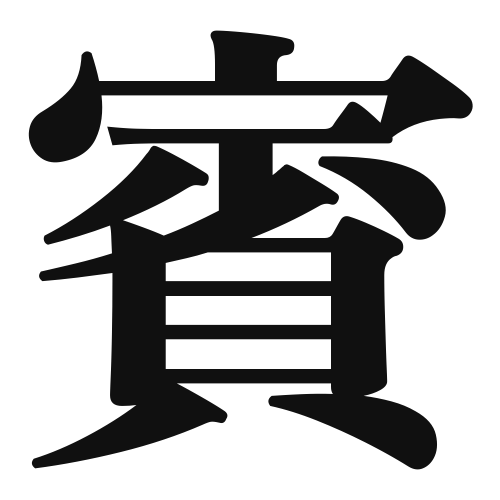1. Overview of Meaning
The kanji “賓” (bin) generally means “guest” or “visitor.” It is often used in contexts related to hospitality and welcoming people.
2. Formation and Radical
Formation of the Kanji: The kanji “賓” is a phonetic-ideographic character (形声文字). It combines the radical for “money” (貝) with a phonetic component that suggests its pronunciation.
Radical: The radical of “賓” is 貝, which is associated with valuables or money, indicating a connection to the importance of guests in terms of hospitality and commerce.
3. Examples of Usage
Common Words and Phrases:
- 賓客 (hinkyaku) – guests
- 賓館 (hinkan) – guesthouse
Example Sentences in Daily Conversation:
- 私たちは今夜、賓客を迎えます。 (Watashitachi wa kon’ya, hinkaku o mukaemasu.) – We will welcome guests tonight.
- この賓館はとても快適です。 (Kono hinkan wa totemo kaiteki desu.) – This guesthouse is very comfortable.
4. Synonyms and Antonyms
Similar Kanji:
- 客 (kyaku) – also means “guest,” but is more general and can refer to customers or clients.
Antonyms:
- 主 (nushi) – means “master” or “host,” representing the opposite role of a guest.
5. Cultural and Historical Background
Connection to Japanese Culture: In Japan, hospitality is a significant cultural value, and the concept of “賓” reflects the importance of treating guests with respect and care.
Proverbs and Idioms:
- 「客は神様」 (Kyaku wa kamisama) – “The customer is God,” emphasizing the importance of guests in service industries.
